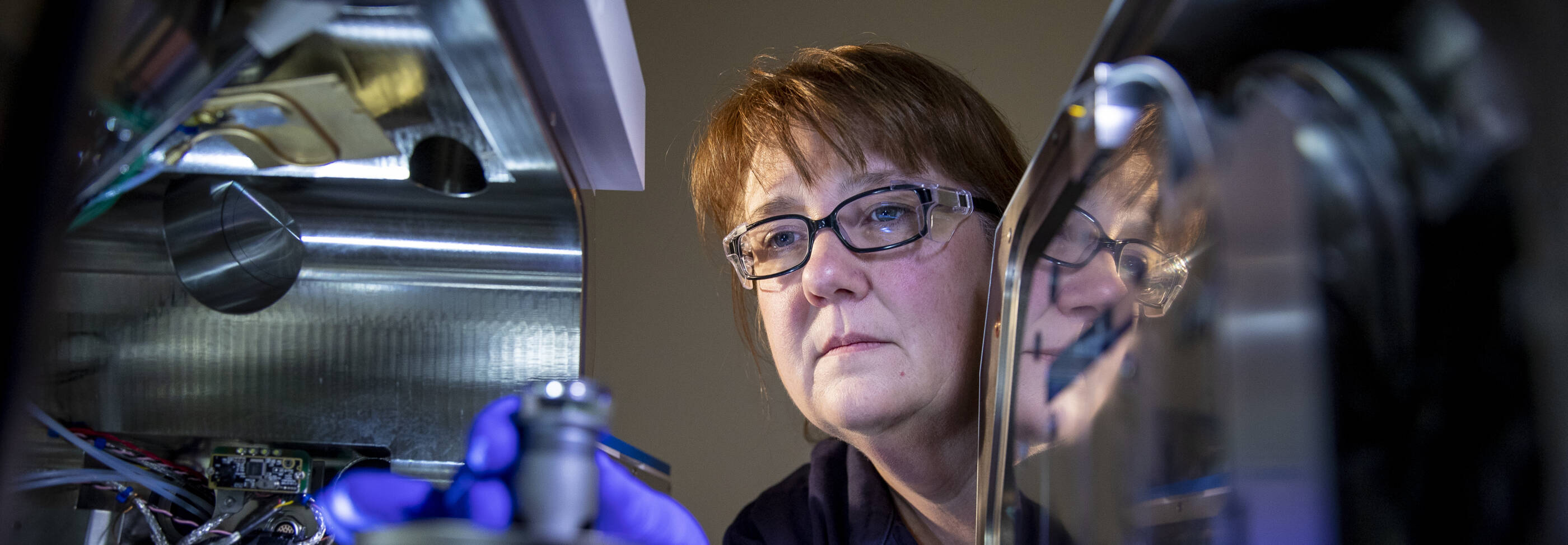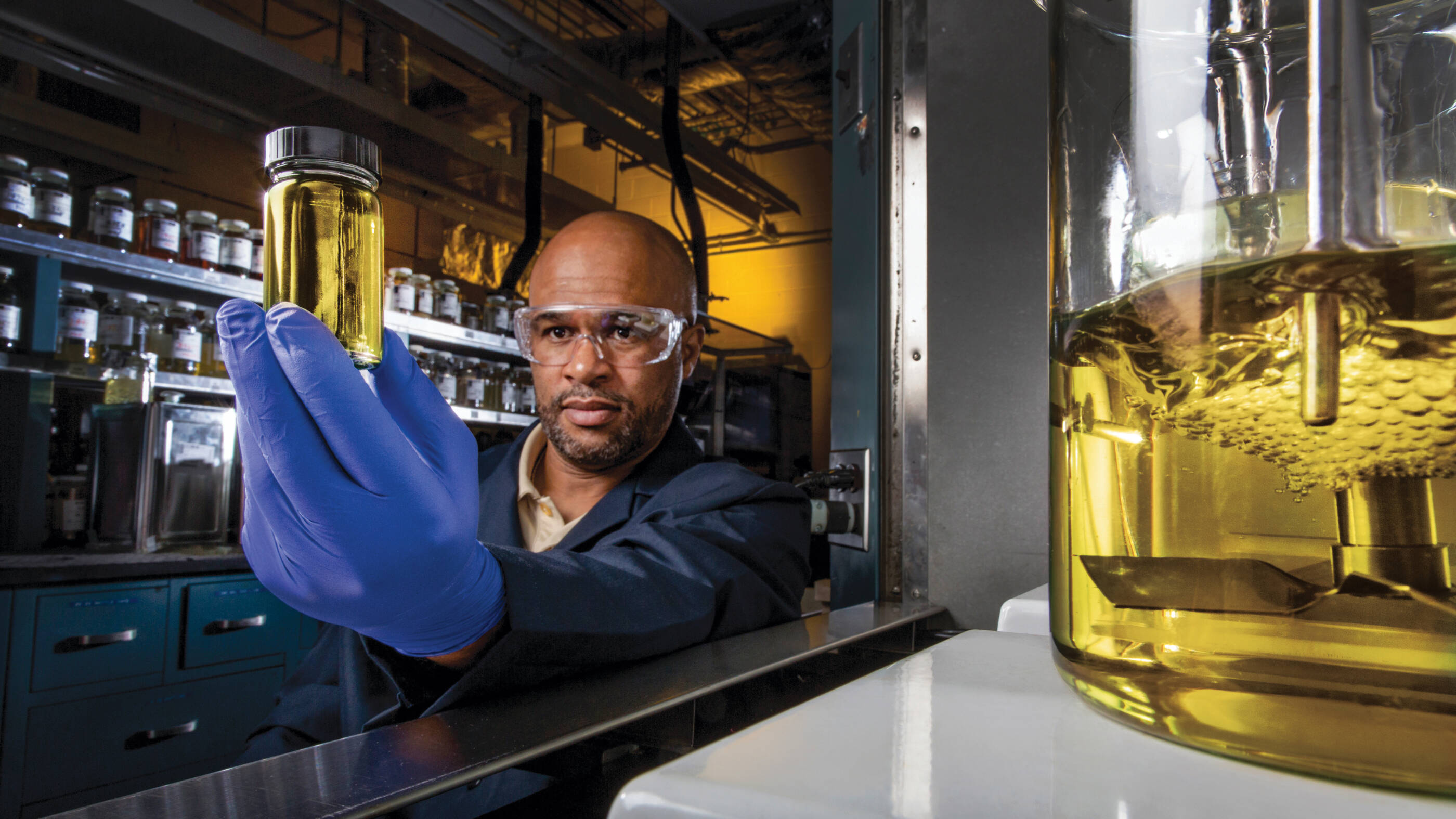Advancing Science: Partnering with the Department of Energy’s National Labs
In this article
R&D partnerships overview
ExxonMobil has a robust commitment to R&D investment. Since 2000, we have spent $16.5 billion on R&D across all sectors of our business. With a mandate to meet the dual energy challenge—powering the world while lowering emissions—ExxonMobil entered a 10-year partnership in 2019 with two Department of Energy National Labs to research and develop groundbreaking technologies for reducing carbon output. This collaboration with DOE’s National Renewable Energy Laboratory (NREL) and National Energy Technology Laboratory (NETL) will include research on biofuels, carbon capture and storage, and lifecycle analysis. The partnership is one of the largest agreements between the Department of Energy’s network of national laboratories and the private sector.
We can’t do this on our own — we want to get the big players on our team to help us solve [the dual energy] challenge.
Research at NREL
The National Renewable Energy Lab (NREL) in Colorado is one of the country’s foremost scientific institutions with a focus on renewable power, energy efficiency, and energy systems integration. Researchers at NREL’s world class facilities, including the Integrated Biorefinery Research Facility, the Energy Systems Integration Facility, and the National Bioenergy Center, work to develop lower-carbon energy solutions for the 21st century.
ExxonMobil’s partnership with NREL is focusing on biofuels, lifecycle analysis, and energy systems modeling with a specific focus on developing scalable technologies to reduce emissions. With NREL’s expertise in renewables, the ExxonMobil partnership will also look to explore how intermittent renewables can be integrated into the grid.
Research at NETL
With campuses in Pittsburgh, Pennsylvania; Albany, Oregon; and Morgantown, West Virginia, the National Energy Technology Laboratory (NETL) has a long history leading research into carbon capture and storage (CCS). Given ExxonMobil’s industry-leading position in CCS research and application, partnering with NETL to advance carbon-capture technologies only made sense.
NETL is the only National Lab dedicated to fossil energy research and development. Its partnership with ExxonMobil will focus on how big base-load generators, particularly natural gas-fired plants, will continue to support the 21st century electric grid.
NETL’s unparalleled experience in carbon capture R&D puts it in a unique position to help ExxonMobil explore both the potential and the challenges of large-scale CCS commercialization.
The bigger picture
ExxonMobil’s partnership with the Department of Energy’s National Labs underscores ExxonMobil’s dedication to advancing the science around lowering emissions. “Finding meaningful solutions to address climate change is going to take everyone – governments, companies and academia – working together,” said Vijay Swarup, vice president of research and development at ExxonMobil.
Related content



